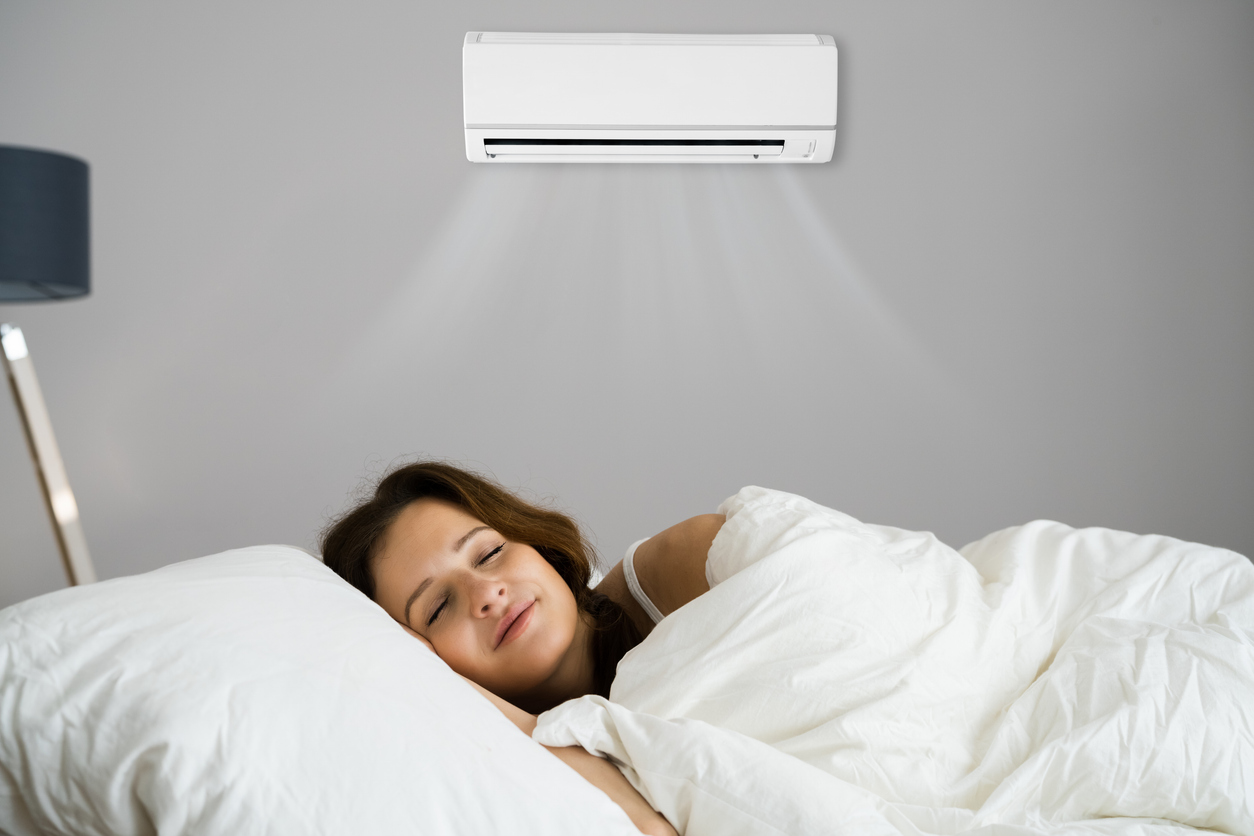
Many people struggle to get a good night’s sleep, which can cause problems with their mood, health, and overall well-being. There are many aspects to consider when determining why your rest isn’t good, including the optimal sleep environment. Many people consider their use of screens before bed or their overall bedtime routine. Still, something many people don’t think about is their HVAC system. Believe it or not, your heating and cooling systems can impact your respiration much more than you might believe, especially in the warmer months. Here are a few factors for your consideration to help you rest better at night.
Most people have a temperature they prefer to doze off, but it might not be the best for their body. Sleep experts generally agree that your nighttime home temperature should be between 60 and 67°F.
Your climate control system keeps your home’s temperature in this range. If you don’t set your thermostat correctly or your system struggles to keep your home at a particular temperature, you won’t be able to enjoy a peaceful slumber.
Humidity can make a warm day outside feel insufferable. It causes you to feel warmer and stuffier and ruins your experience. The same can be said inside your home. If the humidity in your home is too high, you will likely toss and turn throughout the night, trying to get comfortable. On top of that, if the humidity is too low, it can dry out your skin and cause problems with your sinuses.
Getting an HVAC system with reasonable humidity control, including a whole-home dehumidifier or humidifier, can help you find the humidity balance you need.
When you go outside and inhale the scent of all the blooming flowers and sneeze, you know it’s a problem with the air quality. What you might not consider is that air quality inside your home also significantly impacts your breathing. If the air quality inside your home is poor, it can lead to congestion, difficulty breathing, and issues with allergies. All of this can cause you to have trouble dozing off.
It’s vital that you pay close attention to your heating and cooling system’s filters, ventilation, and ductwork. Make sure you regularly clean out your filters and get your ducts cleaned.
If your climate control system regularly makes a lot of noise, it’s not just annoying. It can impede your ability to get a good night’s sleep. If you often hear loud fans or rattling vents, it might be time to get it checked out by a professional or upgrade to a quieter system.
If the airflow in your home isn’t consistent, you can end up with hot and cold spots throughout the house. When you’re trying to nod off, and your room is too hot or cold, it might not get proper air circulation. If that’s the case, your HVAC system might need balancing or upgrading. Zoning systems throughout your home and ceiling fans can help ensure comfort during the night.
You might not realize how much of a role your climate control system plays in your bedtime routine, but we do. We can help you optimize temperature, humidity, air quality, and airflow to help create your optimal sleep environment. That way, you can wake up feeling rested and recharged to take on the day.
Do you need help fine-tuning your HVAC system to improve your respite? Contact Capital City Comfort Solutions today for a seasonal tune-up or consultation.